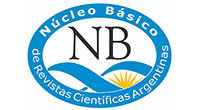Artists!, Not Muses
DOI:
https://doi.org/10.24215/23142502e048Keywords:
Music, work, inequality, sex/genderAbstract
This article proposes a reflection about the sexual division of women’s work in the field of music based on some concepts developed by French materialist feminist theorists. The reflection focuses on the thesis developed by Paola Tabet on the technical sub-equipment of women, linked to the concepts of structural social relations between the sexes (Nicole-Claude Mathiew) and appropriation (Collete Guillaumin) as nodal categories to think about the different ways in which inequality is produced and sustained. Starting from the female quota law to think about differentiated access to the means of musical production (instruments and technology) and some of the contributions developed by Lucy Green around music and gender in contrast and connection with the the ideas proposed by Tabet and Guillaumin.Downloads
References
Editions Productora. (s. f.). La dama de la percusión. [Archivo de video]. Youtube. https://www.youtube.com/watch?v=Se3L6Rfcx_I
Aladro, A. (2018). Mujeres en la murga porteña: Arte, territorialidad y empoderamiento. Amérique Latine Histoire et Mémoire. Les CahiersALHIM (35). https://doi.org/10.4000/alhim.6170
Bidaseca, K. (2010). Perturbando el texto colonial. Los estudios (pos)coloniales en América Latina. SB.
Delphy, C. (1982). El enemigo principal. En Por un feminismo materialista. El enemigo principal y otros textos (pp. 11-28). La Sal.
Falquet, J. (2014). Nicole-Claude Mathieu: Hacia una anatomía de las clases de sexo. Revista Andaluza de Antropología, 14, 178-199.
Green, L. [1997] (2001). Música, género y educación. Morata.
Guillaumin, C. (2005). Práctica de poder e idea de Naturaleza. En O. Curiel y J. Falquet (comps.). El patriarcado al desnudo. Tres feministas materialistas (pp. 19-56). Brecha Lésbica. Ley 27.539 de 2019. Ley de cupo femenino y acceso de artistas mujeres a eventos musicales. 19 de diciembre de 2019. D.O. No. 34.266.
Lionetti, L. (2007) El arte de educar en «las segundas madres». En La misión política de la escuela pública. Formar a los ciudadanos de la república (1870-1916) (pp. 181-206). Miño y Dávila.
Quintana Martínez, A. (2006). Género, poder y tradición. Al baile de la gaita el caimán le repica [Tesis de maestría, Universidad Nacional de Colombia]. https://studylib.es/doc/8289188/g%C3%A9nero--poder-y-tradici%C3%B3n---universidad-nacional-de-colombia
Tabet, P. (2005). Las manos los instrumentos y las armas. En O. Curiel y J. Falquet (comps.). El patriarcado al desnudo. Tres feministas materialistas. (pp. 57-119). Brecha Lésbica.
Wittig, M. (2006). El pensamiento heterosexual. En El pensamiento heterosexual y otros ensayos (pp. 45-57). Egales.
Downloads
Published
How to Cite
Issue
Section
License
Copyright (c) 2022 Lara Lirussi

This work is licensed under a Creative Commons Attribution-NonCommercial-ShareAlike 4.0 International License.
According to these terms, the material can be copied and redistributed by any means or in any format as long as a) the author and original source of the publication are quoted (magazine and URL of the work), access to the license is provided and whether changes have been made is mentioned; and b) the material is not used for commercial purposes.
The cession of non-exclusive rights means that after the publication (post print) in Boletín de Arte the authors can publish their work in any language, means and format; in such cases it must be mentioned that the material was originally published in this magazine.
Such cession also means the authorization of the authors for the work to be collected by SEDICI, the institutional archive of the National University of La Plata, and to be spread in the databases that the editorial team considers appropriate to increase the visibility of the publication and its authors.
Moreover, the magazine encourages the authors to deposit their productions in other institutional and thematic archives under the principle that offering the society the scientific and academic production without any restrictions contributes to a greater exchange of the global knowledge.
































